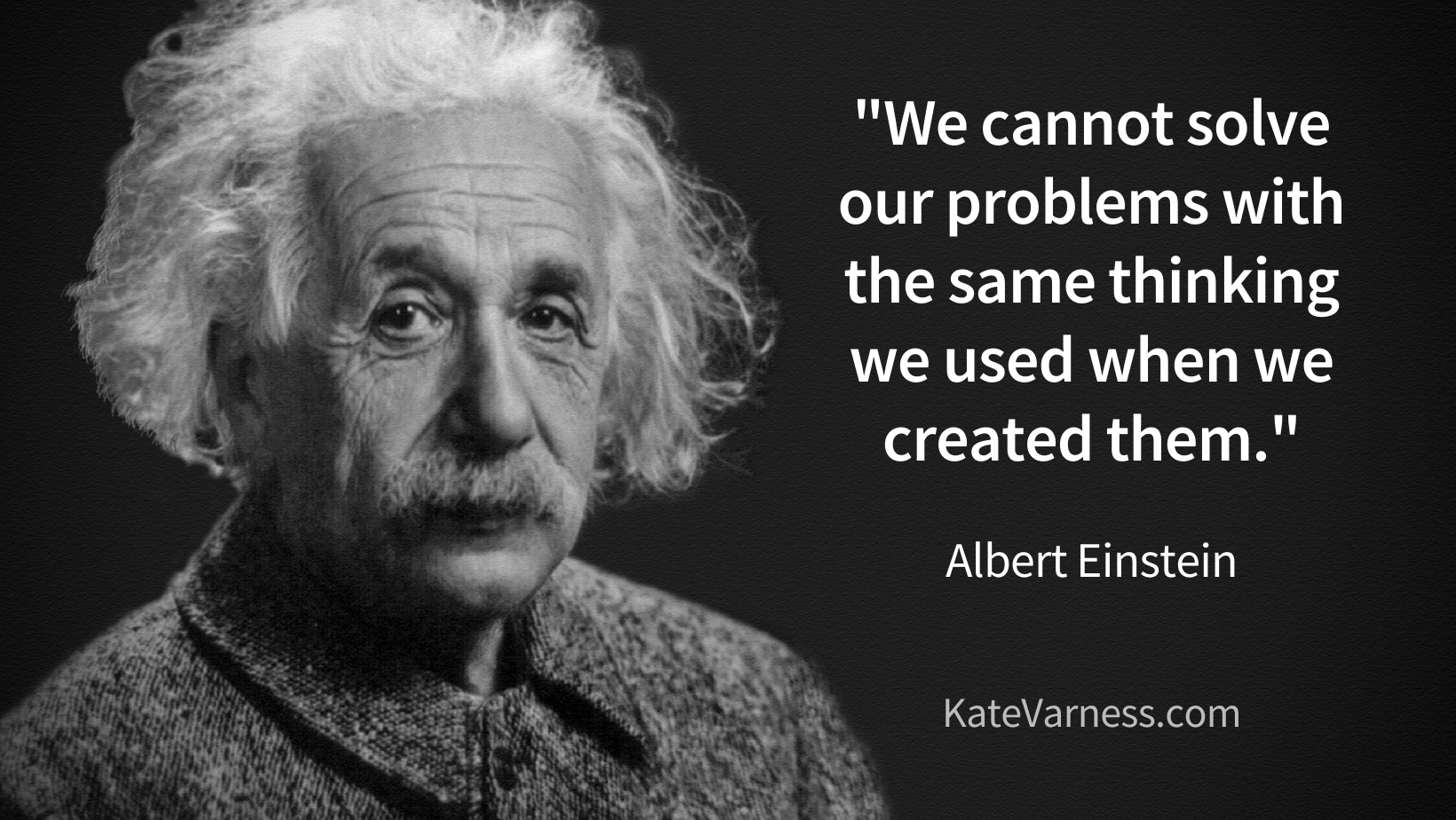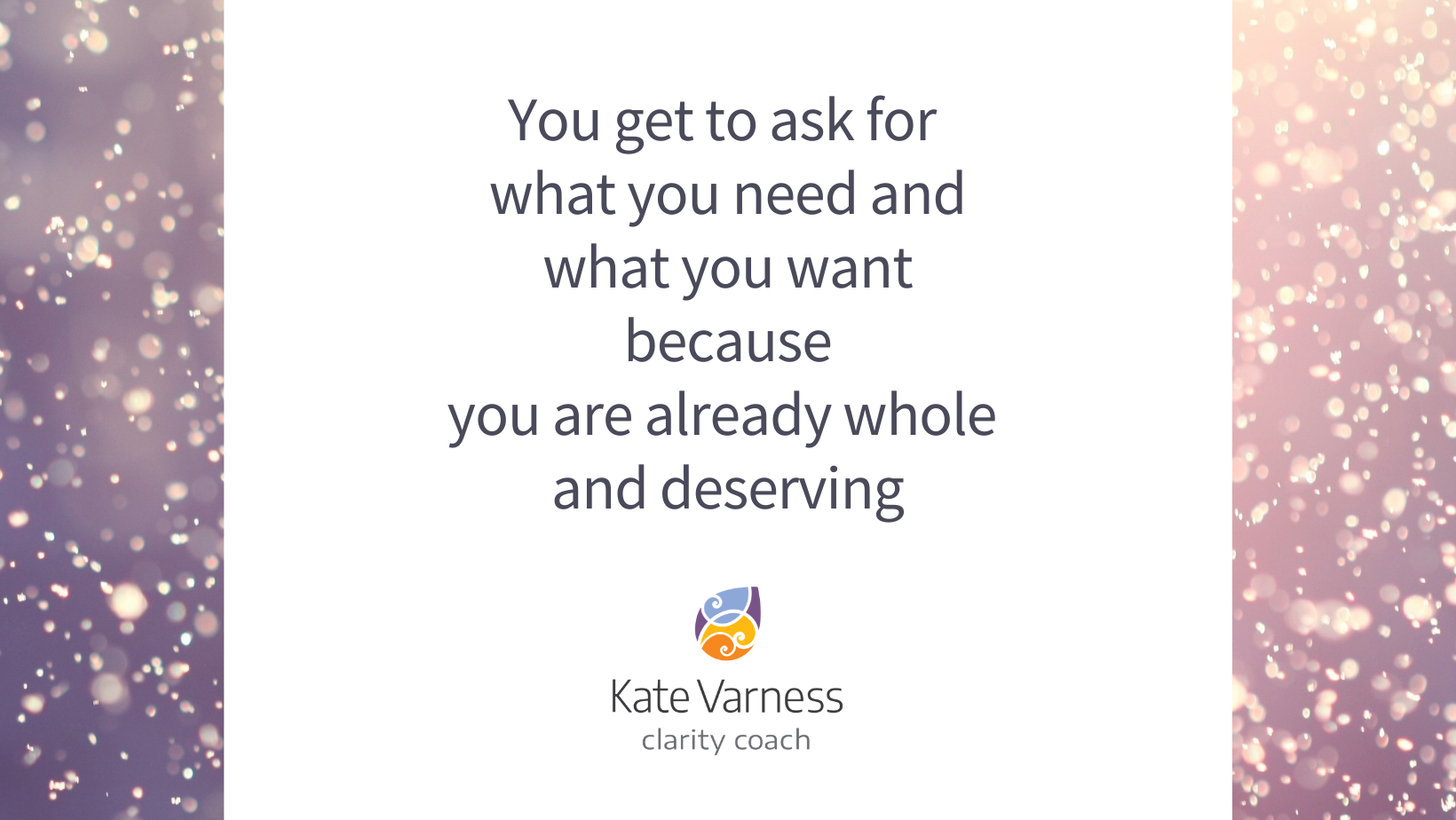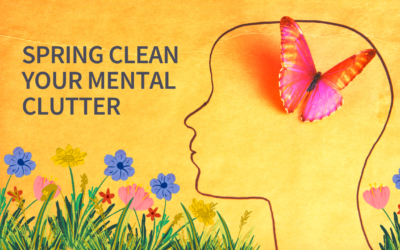4 Signs You’re Treating Yourself Like a Project (& Why You Should Stop)
Tis the season for self-improvement.
If you want to avoid the annoying pattern of setting goals based on
willpower only to be disappointed when you cannot sustain it, read on.
There’s an insidious idea baked into nearly all advertising and magazine copy: That you are a P-word.
(By P-word, I mean Project. What did *you* think I meant? 😊)
Keeping you dissatisfied sells products, magazines, books, programs, and a whole lot of lotions and potions.
The desire to experience life differently isn’t – by itself – an issue. What’s problematic is when treating yourself as a project becomes your go-to perspective.
Let’s look at four signs you’re treating yourself as a never-ending project.
1. You make New Year’s Resolutions.
Ah, the promise of a fresh start!
Let’s settle in with a cup of tea, make a list of how we’re failing at life, decide which areas we will fix first, and buy a beautiful planner so that we can be organized as we magically follow through on our resolutions.
- This time will be different!
- This time we are really committed!
- Yes, I will get up two hours before my kids do so I can meditate and work out!
[Insert thoughtful pause.]
[Insert additional pause.]
[Cue negative self-talk.]
Listen. I’m not trying to be Debbie Downer. I’ve participated in the New Year’s Resolution pattern often enough to see it for the unhelpful trap that it is.
It’s like chasing a feather down the street on a windy day.
(Actually, that might be a fun way in incorporate exercise. But I digress.)
We aren’t falling for this trick only once a year. Setting New Year’s Resolutions has a close cousin called, “I’ll start on Sunday.” And we know how that goes.
Here’s why resolutions are so awful: you’re volunteering for a continuous timeline of treating yourself as a project.
The “I’m a Project” Purgatory loop looks like this.
- I have a history of being flawed in this area.
- I’m flawed now.
- When I don’t follow through on the ridiculous attempt to use willpower, I’ll be flawed until that illusive future time when I will change.
- So, what’s a girl to do? How about stop depending on willpower.
One thing I’ve learned as a certified Human Design Consultant is that roughly 2/3 of the population is not designed to will themselves into action and be able to sustain it.
Likely, you’ll do better with more self-affirming approaches. Check out some willpower alternatives.
2. You buy self-improvement products, books and courses but don’t fully use them.
Buying equipment or reading the latest fad solution takes the edge off of treating yourself as a project. There’s a sense that you’re making progress. But are you?
Often, progress is an illusion or doesn’t stick. Similar to the resolutions pattern of plan-fail, the pattern of consuming self-help products and not integrating them inadvertently feeds the need to see yourself as broken.
Every time you see that dusty exercise bike, pay the monthly fee, or notice the partially read book on your nightstand, you make a mental check mark in the “I can’t follow through and that’s why I should keep trying to fix myself” column.
Not very confidence-building, is it?
And yet, many people are stuck in this pattern because the evidence
seems to reinforces it.
What’s a better alternative?

Turns out, buying the exercise bike (or whatever) to have it handy isn’t the most important factor in creating change.
More important is self-efficacy, a person’s deep-seated belief in their capacity to achieve their goals.
You don’t nurture self-efficacy by looking at your failed track record.
Instead, you build belief in your capacity by reviewing your peak experiences, by watching other people succeed or having those successful people teach you how to do it, by reinforcing your potential via encouragement from trusted sources, and by managing your physical and emotional stress response.
Viewing yourself as a project comes with an inherent bias of failing.
By contrast, self-efficacy expands the foundation of what is already right and adds in the joy of having good support. More on self-efficacy here.
Can you see the why this difference is important?
3. People are constantly giving you reassurance, but it doesn’t sink in.
Have you ever felt like a bottomless pit of neediness?
I have. Most of my life, I considered myself to be a formidable project.
Something that needed to be fixed, healed, polished, and improved inside and out.
Even as I felt annoyed with myself for seeking reassurance or deliberately fishing for compliments, the kind words never sunk in.
I hoped that hearing other people tell me I was good enough would fix my insecurity.
Didn’t work. In fact, it sort of backfired.
To explain the disconnect between what I was hearing and what I believed about myself, I made up stories like:
- He’s just saying that to be nice or because I put him on the spot.
- If she really knew what I was like, she wouldn’t have said that.
I didn’t trust positive comments from others because I didn’t believe them myself.
Appreciation of your present state may be the secret weapon to intentional living.
Consider this: what if you weren’t a project?
What if you lived with the assumption that you are already whole and deserving?
Would you be in the photos? Would you do the activities that you love without placing conditions on what else gets done first? Would you honor the desires of your heart?
There’s a gorgeous life available to you – right now – free of any conditions.
You get to light the delicious-smelling candle.
You get to heat up your favorite warm beverage.
You get to rest.






0 Comments